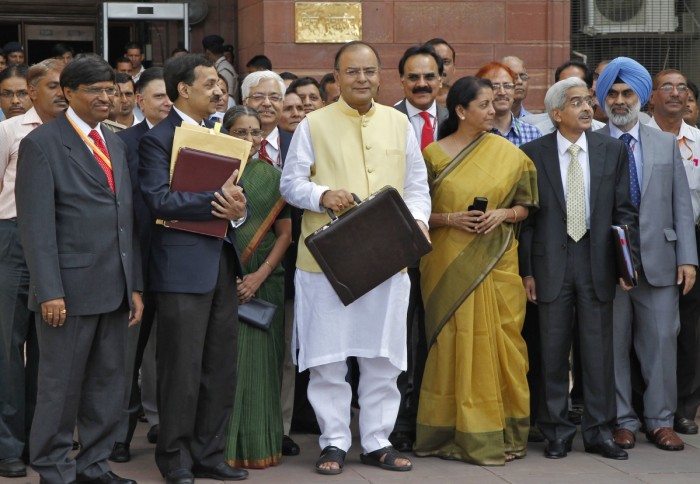Just for a moment think that you have been always a prudent investor and you understood very well the power of compounding and impact of inflation on return. Now suppose you always schedule your yearly vacation during budget time. So this means you go to some place far away may be in North-East India or in Galapagos or in Timbuktu island just few days before the budget day. You do not get any internet there, no newspaper, no TV channel. And you come back almost after 7 days since annual budget is presented every year. Do you really think that your overall portfolio would get seriously suffered due this untimely(!) holiday of yours? Time proves – it would not. Chances are it would instead benefit you! As long as you save and invest regularly and your portfolio is designed to beat inflation over long term – you are safe and destined to succeed.
Budget is of utmost importance for country’s economy and for functioning of government. Yes it mentions changes in tax slabs sometime and sometime also changes in product basket that qualifies for tax exemption. It increases or reduces your post tax income. Budget also mentions that some items will get dearer and some will get cheaper. This also may increase or reduce your expenses. So the changes in tax slab alone cannot decide your cash-flow situation. So many other factors are also there. Hence it can be safely said that your overall family budgeting and discipline will finally matter. Nothing else actually.
Some of the indirect tax rules may also see changes in this budget. Some industry may get tax sops, some may have to face more tax burden. Changes in excise or customs duty may adversely or favorably impact some industries. There will be surely some knee-jerk reaction for sure and effect can be seen in stock prices of such companies in short run. But again in long run, a company’s stock price is most likely to reflect only how well a company’s management manages cash-flow, generates return on equities, creates value for shareholders. Hence if in your portfolio there is a stock which is well bought i.e. you bought an above average company at a below average price, you are safe and did a commendable job. Stay assured that such buys will always create lot of real wealth for you in long run.
So the basics remain unchanged. You can skip this budget if you are already on right path. And how the ‘right path’ looks like? See below:
1) Focus on your family budget. Along with your household and lifestyle expenses also allocate fund for leisure, entertainment, travel but stay within limit. Do not overspend.
2) Write down your financial goals. Set your targets. Look at the possible scenarios. Check your surplus. Start investing accordingly, and remain rock steady.
3) Keep emergency fund ready in liquid instruments.
4) Calculate and then take right amount of life cover.
5) Depending on the city you live, likely expenses in nearby hospitals – take right amount of health cover (popularly known as medi-claim).
6) Saving tax is definitely a good idea but not by compromising on life goals’ strategy. If some tax saving investments get fit into your recommended portfolio to achieve financial goals in time, then fine, go for it (early in the financial year) and save tax.
7) Monitor your investments and review your financial plan at regular interval.
Phew! You are almost done! So pack your bag and go for a vacation. Will see you post budget. Happy journey! 🙂






